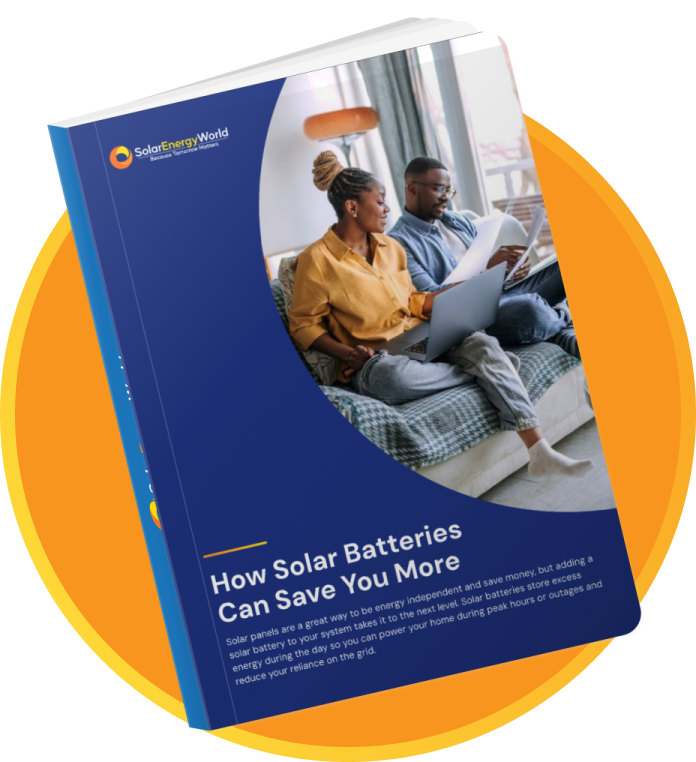Article
The Beginner’s Guide to Solar Energy Equipment

Switching to solar energy can feel like a big leap, but it’s a smart move for homeowners who want to harness clean energy, reduce utility costs, and enjoy more energy independence. If you’re considering adding solar energy to your home, this guide will walk you through the basic components of a solar energy system, essential equipment, and tips for choosing the right products and services for your needs.
Understanding Solar Energy Systems
A solar energy system involves more than just solar panels; it’s a network of components working together to capture, convert, and deliver electricity. Solar panels absorb sunlight, but inverters convert it into usable electricity, and mounting hardware secures the panels in place. Systems may also include batteries for energy storage, charge controllers to regulate battery charging, and essential wiring and safety equipment. Together, these components enable a reliable and renewable energy source for your home, reducing utility dependence and supporting energy savings.
Essential Solar Energy Equipment
Solar energy systems comprise several key pieces of equipment, each performing specific roles to make the system work efficiently.
Solar Panels
Solar panels are the heart of your solar system, responsible for capturing sunlight and turning it into electricity. Made up of numerous solar cells, these panels work by absorbing photons from sunlight, which then trigger a flow of electrons in the cells, creating direct current (DC) electricity.
Inverters
Inverters are essential for transforming the electricity generated by your solar panels into a usable form for your home. Solar panels produce direct current (DC) electricity, but most household appliances use alternating current (AC).
The inverter acts as the system’s translator, converting DC to AC so that your home can efficiently use the solar energy produced. Inverters also help monitor system performance, ensuring a safe, steady flow of electricity throughout your home.
Mounting Hardware
Mounting hardware secures your solar panels to your roof, the ground, or another surface, providing stability and optimal positioning. It’s designed to withstand various weather conditions, ensuring the panels stay in place and capture maximum sunlight.
Proper mounting is crucial to protect both the panels and your home’s structure, as well as to position the panels at the best angle for energy capture.
Charge Controllers
If your solar system includes batteries, charge controllers play a critical role by managing the flow of electricity between the panels and the batteries. They regulate the voltage from the solar panels to prevent overcharging, which could otherwise damage the batteries.
By ensuring that batteries are only charged within safe limits, charge controllers help extend battery life and maintain overall system efficiency.
Solar Batteries
Solar batteries allow solar energy systems to store excess energy generated during sunny periods for use at night or during cloudy days. This storage capability provides backup power, offering greater energy independence and reliability, particularly in areas with unstable utility grids.
Batteries also make off-grid solar systems possible by enabling continuous access to electricity, even when the sun isn’t shining.

How Solar Batteries Can Save You More
Electrical Wiring and Components
Electrical wiring and connectors form the system’s circulatory system, safely transporting electricity from the panels to the inverter, batteries, and home. This setup includes both DC and AC wiring, along with essential safety equipment like disconnect switches and circuit breakers. Proper wiring and installation ensure that power flows efficiently and safely, minimizing energy loss and reducing the risk of electrical hazards.
Solar Power Monitoring Systems
A solar power monitoring system provides real-time data on your system’s performance, allowing you to track energy production, usage, and efficiency.
Software-Based Systems: Often app-based, enabling remote monitoring and detailed insights into your energy patterns
Hardware-Based Systems: Installed on-site, offering direct monitoring without relying on internet connectivity.
Additional Equipment and Accessories
Beyond the core components, solar energy systems also require essential safety equipment to ensure smooth and secure operation. System disconnects allow you to cut off power from your solar panels when necessary, such as during maintenance or emergencies, protecting both the system and your home.
Additional safety devices like fuses and circuit breakers prevent power surges and control electrical flow, ensuring safe and reliable energy distribution. Together, these accessories play a vital role in safeguarding your system and providing long-term peace of mind for homeowners.
Choosing the Right Equipment for Your Home
Selecting the right solar energy equipment is essential to ensure that your system meets your home’s unique energy needs, structure, and lifestyle. Begin by assessing your household’s energy consumption to determine the system size required, and confirm that your roof or outdoor space can accommodate the panels and hardware. Choosing equipment with solid warranties and clear maintenance plans will further support long-term performance and reliability.
Working with experienced suppliers and installers is equally crucial. Seek providers with residential solar experience, request references for insight into their service quality, and make sure they offer comprehensive support options like warranties and maintenance plans. With the right equipment and support, you’ll be well on your way to harnessing solar energy and enjoying a cleaner, more sustainable power source for years to come.
Interested in making the switch to solar energy, but don’t know where to start? Schedule your FREE solar estimate with us today!
Want a Free Solar Estimate?
Fill out the form to get started today.


